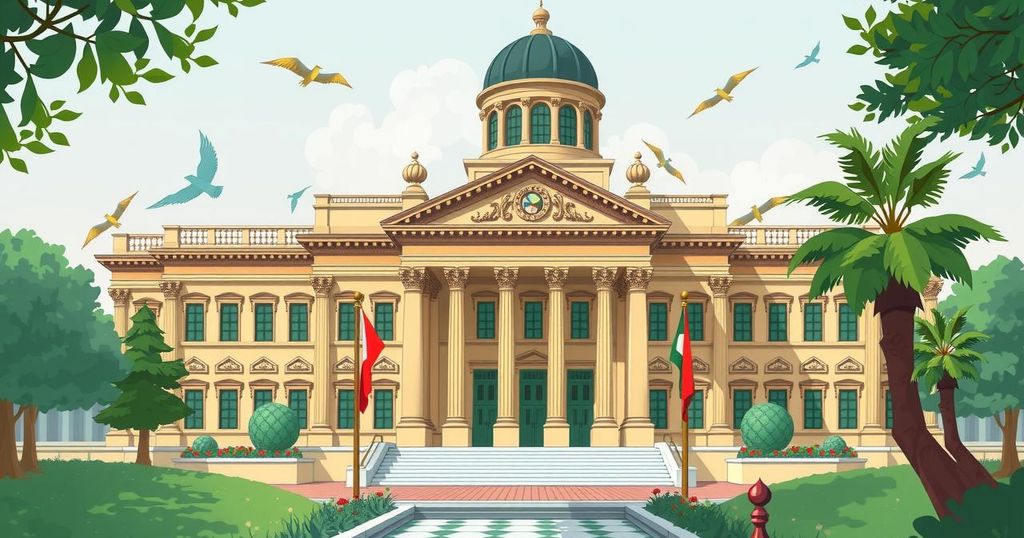Cameroon’s Parliament: Same Leadership, Enduring Stagnation

Marcel Niat Njifenji and Cavaye Yeguie Djibril have been re-elected as heads of Cameroon’s Senate and National Assembly, ensuring continuity in leadership. Both faced no challengers, highlighting a lack of genuine democracy, as the ruling CPDM orchestrates elections without real competition. This stagnation raises concerns about the future of political discourse in the country as it approaches the next presidential election.
In a predictable display of political continuity, Marcel Niat Njifenji and Cavaye Yeguie Djibril have been re-elected as leaders of Cameroon’s Senate and National Assembly, respectively. Djibril, at 84 years old, retained his position with 125 votes out of 137, facing no challengers, while Niat, at 90, garnered 87 votes out of 90 since taking office in 2013. This highlights a political landscape where longevity seemingly outweighs performance.
The ruling Cameroon People’s Democratic Movement (CPDM/RDPC), entrenched for over four decades, orchestrates elections like an elaborate production. Parliament convenes primarily for members to affirm leadership without genuine competition, as decisions are made behind closed doors well before any voting occurs. Therefore, opposition lawmakers find themselves powerless in a process designed to maintain the status quo without meaningful dialogue.
Cavaye Yeguie Djibril’s leadership has yielded limited legislative progress during his tenure, as he regularly prioritizes medical trips over attendance in parliament. His role largely involves consolidating President Paul Biya’s agenda, who, at 92, prepares for another presidential election. Meanwhile, Niat Njifenji’s leadership perpetuates a Senate that resembles a haven for elderly party affiliates rather than a forum for vibrant policy discussion.
The opposition has expressed its grievances mutely, fearing repercussions for vocally challenging the government’s authority. The domination of the CPDM in both legislative houses reduces any semblance of political debate to a mere routine. As the October 2025 presidential election approaches, the likelihood of unchanged leadership persists, manifesting a political system where positions are inherited and recycled rather than contested.
The re-election of Marcel Niat Njifenji and Cavaye Yeguie Djibril underscores the ongoing stagnation in Cameroonian politics, where a single party molds the parliamentary landscape. Despite the existence of opposition parties, the political theater remains unchanged, facilitating the perpetuation of established leaders without genuine competition. As Cameroon readies for the next presidential election, the cycle of political redundancy appears set to continue unless significant shifts occur in the political dynamics.
Original Source: www.cameroon-concord.com







